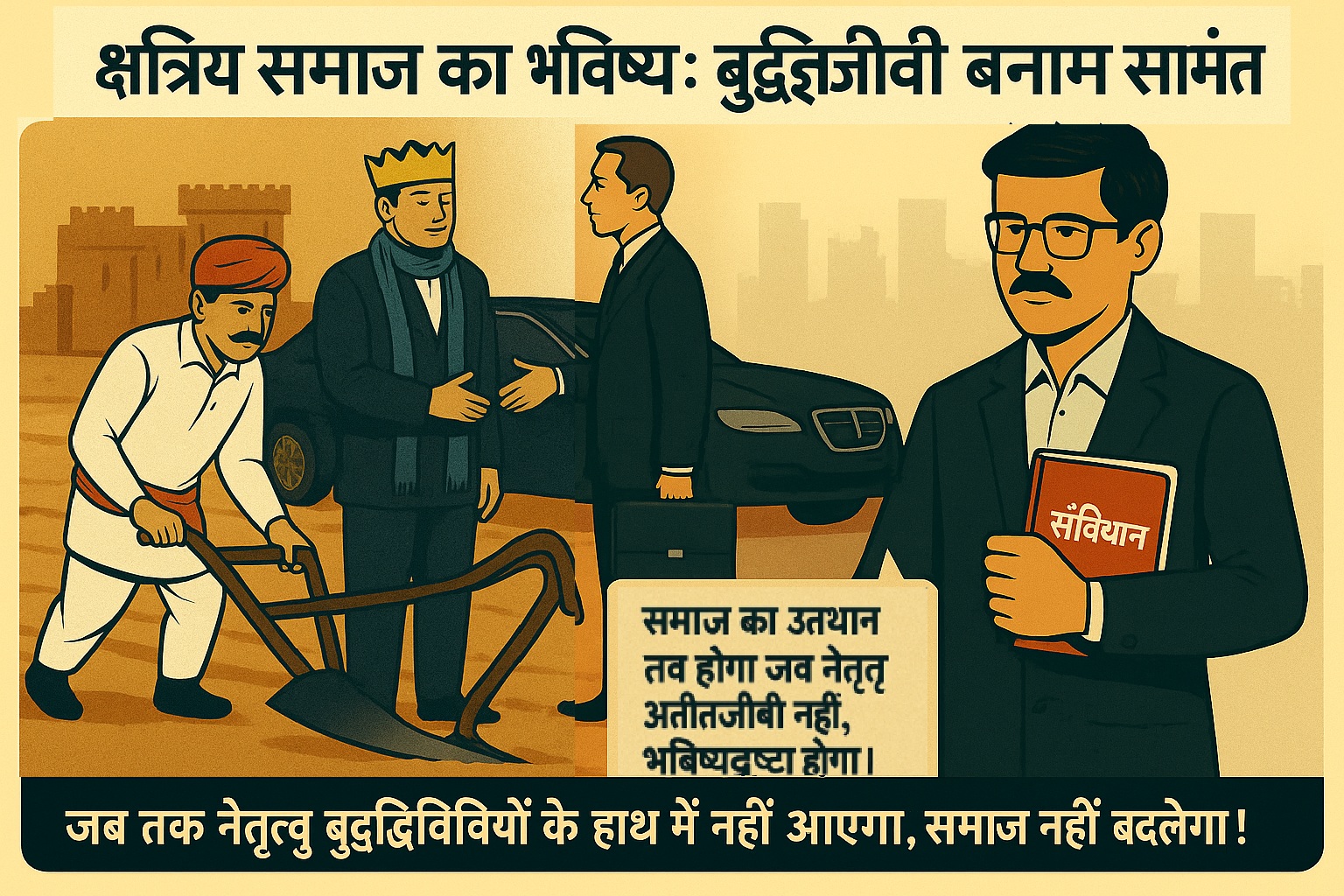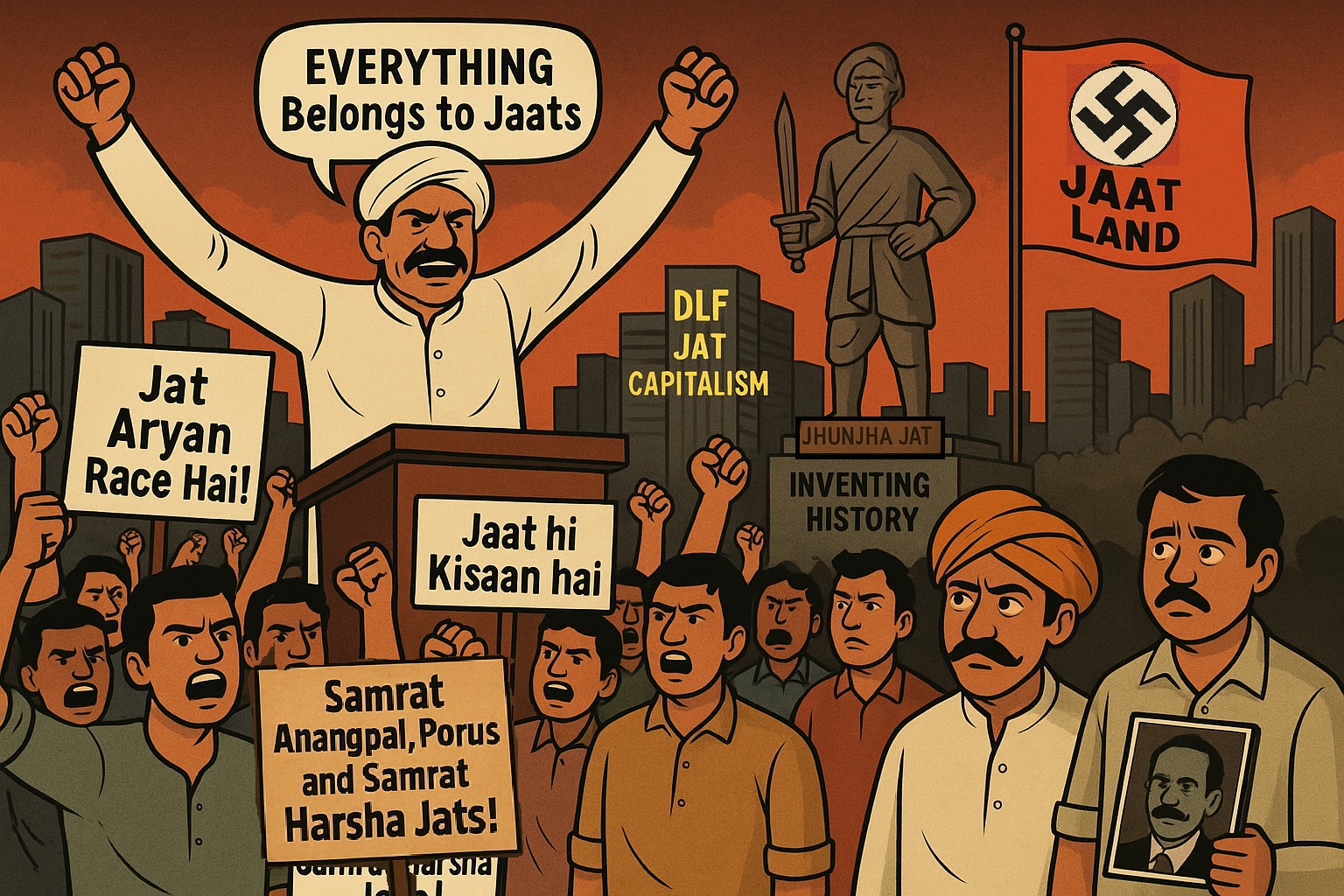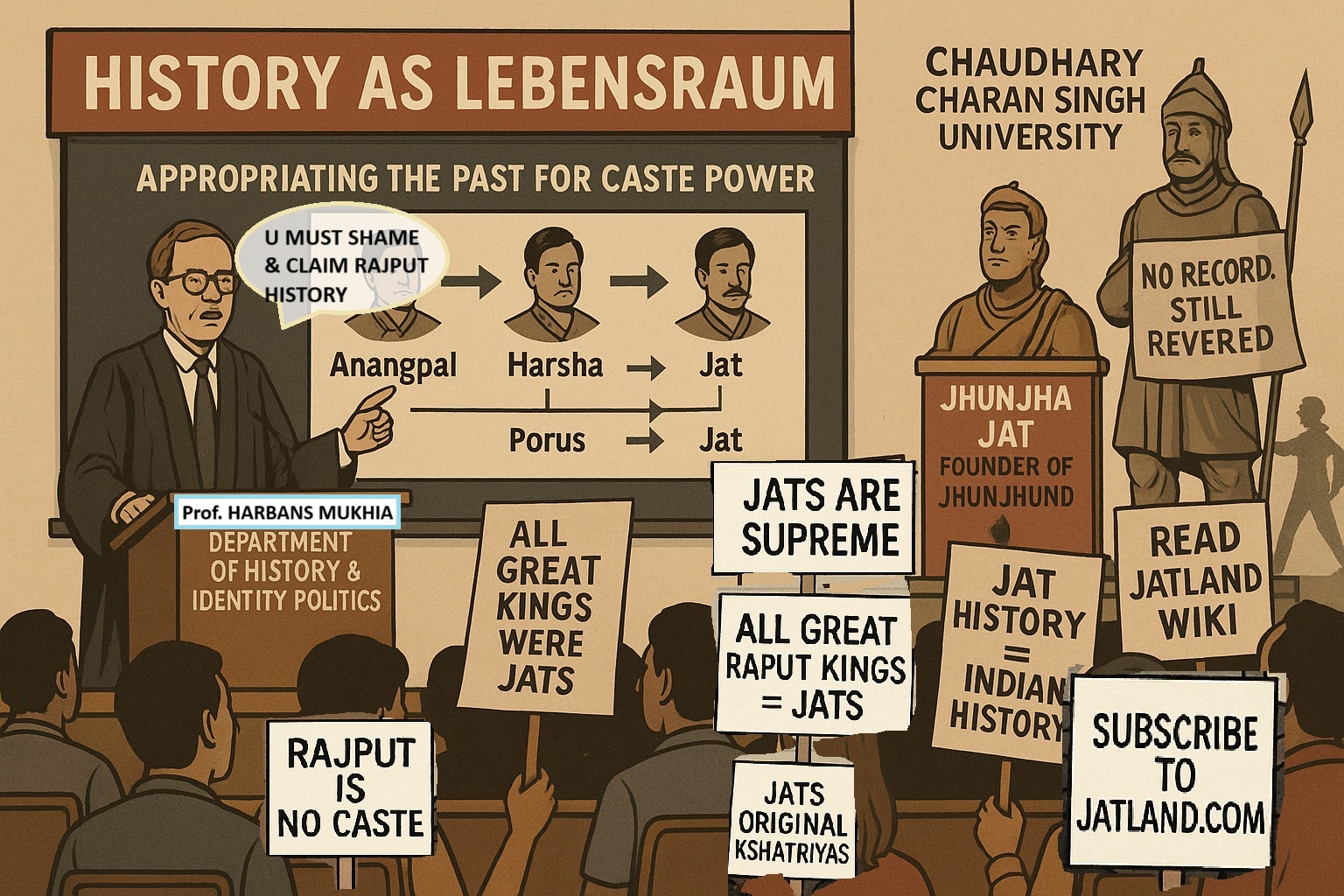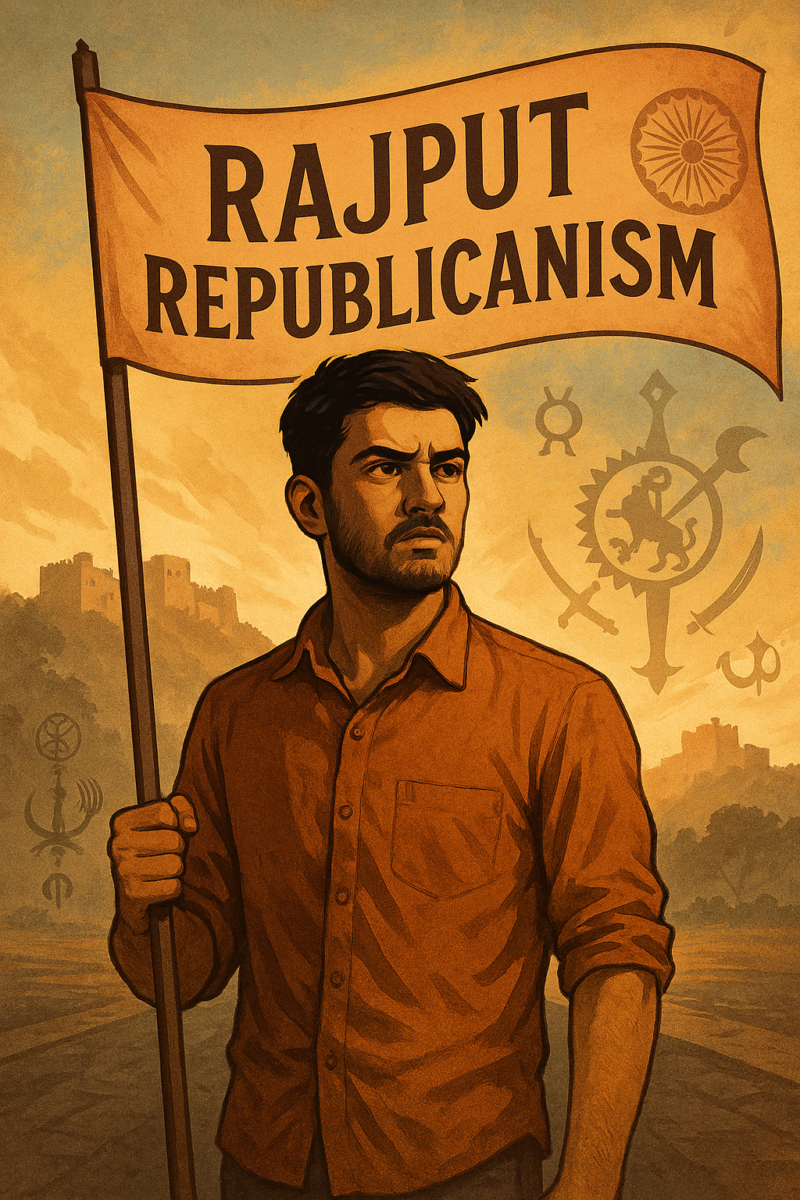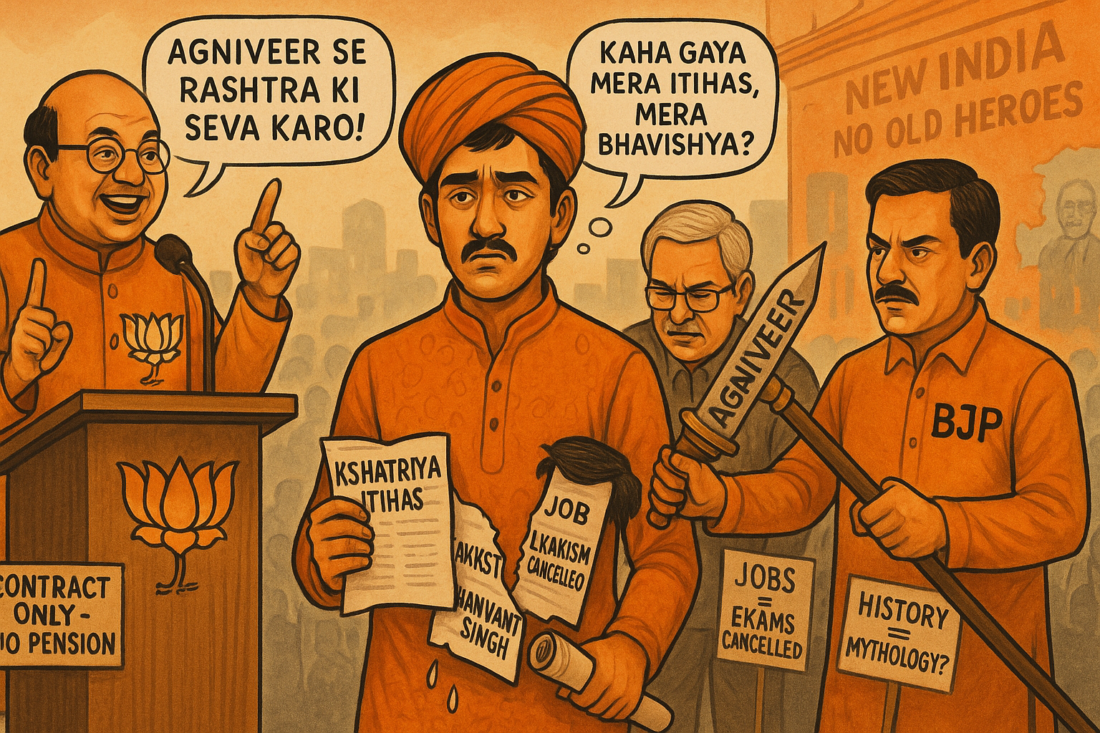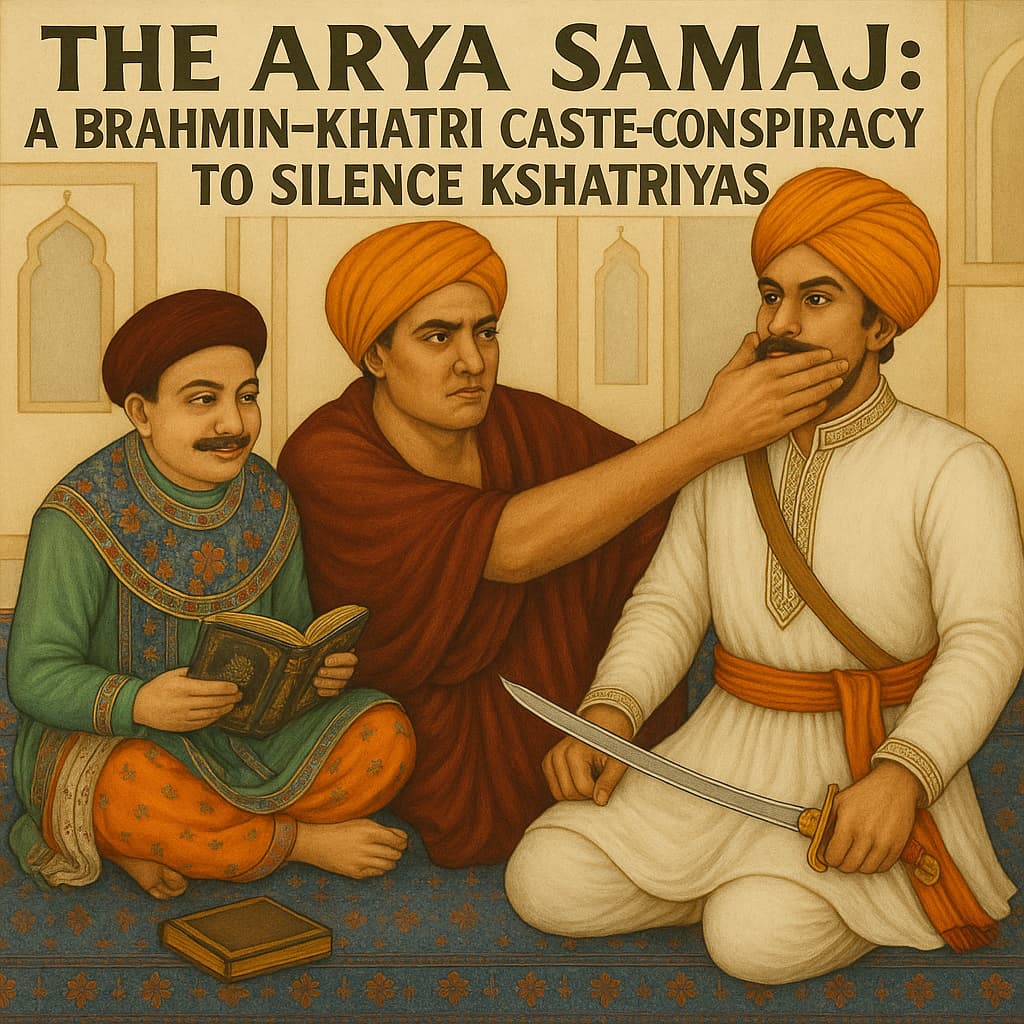Individual Creativity and Collective Responsibility: An Existential Reappraisal of Kshatriya Cultural Stagnation
For nearly three thousand years, communities such as the Rajputs have placed collective well-being above individual fulfillment. Honor, duty, loyalty, and sacrifice were not abstract
Rajput Internal Failures in Modern Politics: A Critical Analysis and Way Forward
The political decline of Rajputs (Kshatriyas) in post-independence India is rooted in systemic betrayal—first by Nehruvian socialism, then by Lohiaites and Hindutvadis. While these forces
Hindutva’s Betrayal of Rajputs and the Case for Independent Politics
I. Introduction The story of Rajput political alignment with the Bharatiya Janata Party (BJP) is not one of ideological conviction but of historical compulsion. From




